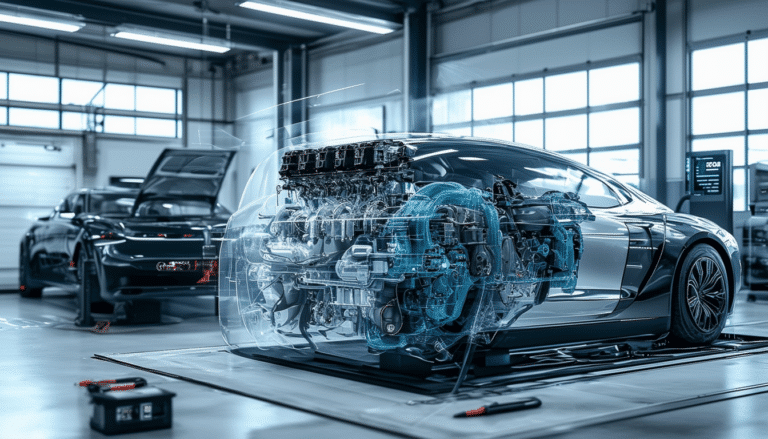The impact of the lack of maintenance on fuel efficiency
The fuel efficiency is a fundamental aspect of vehicle performance, and its optimization largely depends on proper maintenance. When this essential practice is neglected, a significant increase in fuel consumption can be observed, which in turn raises operating costs and harms the environment. The lack of maintenance not only affects fuel economy, but can also reduce the engine’s lifespan and jeopardize safety while driving. Therefore, understanding how maintenance influences fuel efficiency is crucial for any vehicle owner.
The lack of proper maintenance in vehicles can have significant consequences on their fuel efficiency. Ignoring necessary inspections and changes can lead to increased gasoline consumption, thus raising operating costs and also impacting the environment. This article explores how neglecting vehicle maintenance negatively influences fuel economy and highlights the importance of implementing adequate practices to optimize vehicle performance.
Key Components Affected by Neglect
When maintenance services are omitted, multiple vehicle components can suffer. For example, a clogged air filter can reduce airflow into the engine, increasing fuel consumption by up to 10%. Similarly, other elements such as underinflated tires also contribute to greater expenditure, as incorrect pressure increases rolling resistance.
Influence on Driver Behavior
The driving style also plays a crucial role in fuel efficiency. Driver behavior, such as accelerating and braking abruptly, can increase fuel consumption. According to studies, adopting more rational driving habits can lead to a reduction of up to 15% in gasoline expenditure. Therefore, the lack of maintenance not only affects vehicle components but also influences how the vehicle is used.
Long-Term Consequences
Neglecting maintenance not only affects immediate fuel consumption but leads to accelerated wear of mechanical components. This incurs additional repair costs and can eventually shorten the vehicle’s lifespan. The investment that could be made in regular maintenance translates, in the long run, to significantly lower costs and better fuel efficiency.
Preventive Maintenance: The Key to Efficiency
Implementing preventive maintenance is essential for maximizing fuel economy. Regular inspections, oil changes, and cleaning or replacing filters are practices that should be prioritized. Proper maintenance ensures that every component of the vehicle operates under optimal conditions, which directly impacts fuel performance.
Environmental Impact of Neglecting Maintenance
In addition to economic effects, the lack of maintenance also has environmental consequences. A vehicle that consumes more fuel tends to produce higher pollutant emissions. This not only affects air quality but also contributes to climate change. Therefore, keeping vehicles in optimal conditions is not just a matter of saving money, but also of environmental responsibility.
Importance of Education and Awareness
To mitigate the impact of lack of maintenance on fuel efficiency, it is essential to promote education on the subject. Drivers need to be aware of the importance of caring for their vehicles. This includes not only understanding how maintenance practices affect fuel expenditure but also recognizing the connection between good maintenance and reducing environmental footprint. Awareness initiatives can help integrate responsible and sustainable habits into daily driving.
Maintenance Recommendations
To avoid the negative effects of lack of maintenance on fuel efficiency, it is recommended to follow some basic practices. Conduct periodic inspections, adjust tire pressure, change filters and oils as suggested by the manufacturer are essential steps. Additionally, developing efficient driving habits and ensuring that all vehicle systems are functioning correctly are practices that contribute to improving fuel performance and reducing costs.
In conclusion, constant care and proper maintenance of vehicles are elements that directly impact fuel efficiency and environmental sustainability. It is time for drivers and companies to become aware and take action to optimize the use of their resources.
The lack of proper maintenance in vehicles has a direct and negative effect on fuel efficiency. When a car does not receive the necessary care, such as regular inspections and changes of worn parts, its performance is compromised. This can lead to a significant increase in fuel consumption, which not only affects the driver’s budget but also the environment due to higher emissions of pollutants.
One of the most critical aspects is the condition of the tires. Incorrect pressure can increase rolling resistance, resulting in higher fuel consumption. Additionally, a clogged air filter or a dirty one can reduce the amount of air entering the engine, negatively impacting combustion and potentially leading to a 10% increase in fuel consumption. These problems are easy to identify and correct but are often overlooked in the vehicle owner’s daily routine.
Driving style also plays an important role in fuel efficiency. The lack of maintenance combined with inefficient driving habits, such as abrupt accelerations and sudden braking, can increase fuel expenditure by 15%. Therefore, it is evident that there is a direct connection between how a vehicle is driven and its overall maintenance condition.
Promoting a culture of preventive maintenance is crucial for maximizing fuel economy. Implementing regular and conscious practices not only helps reduce fuel expenditure but also extends the lifespan of vehicles, improves the driving experience, and contributes to a more sustainable environment. Thus, proper maintenance should not be seen merely as a cost issue, but as an investment in transportation efficiency and sustainability.





